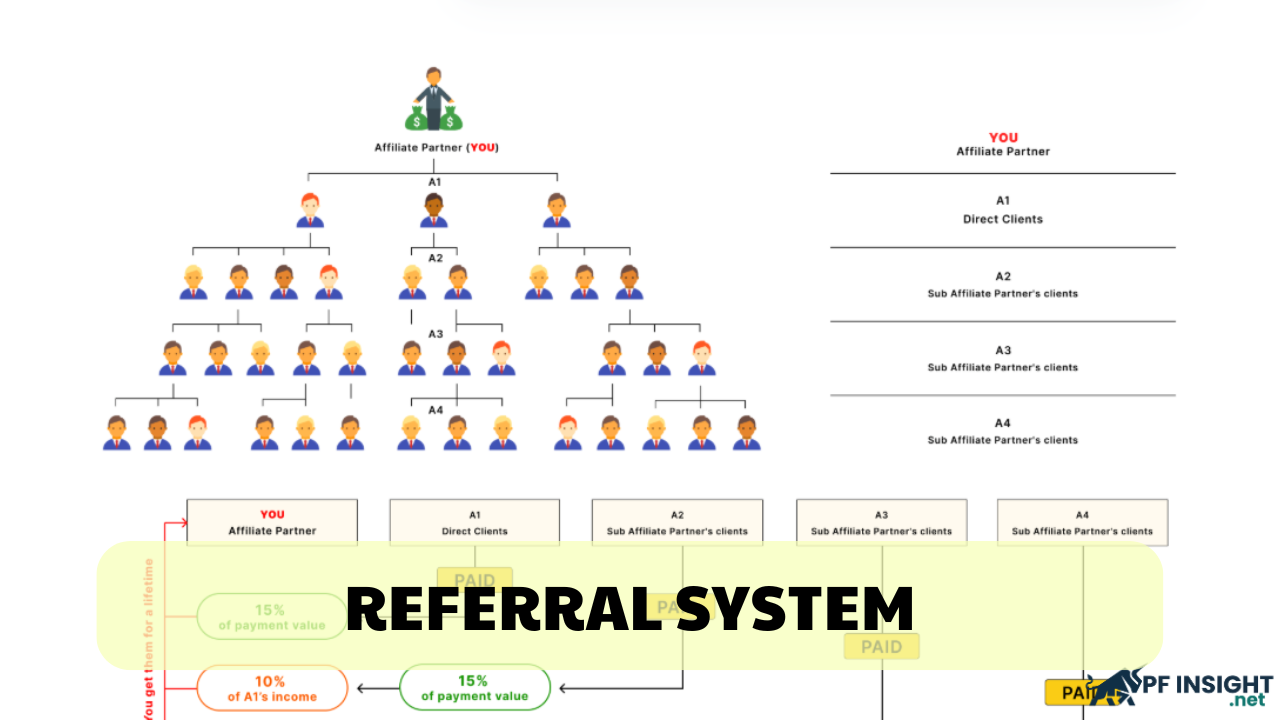Affiliate marketing is a booming industry and has become a popular online advertising channel for many brands. However, not everyone is affiliate compliant. Some marketers try to cheat to make quick profits while ignoring the policies. Therefore, businesses must closely monitor compliance to avoid both financial risks and legal consequences. In this article, let’s learn about affiliate compliance. How do you stay legally compliant as an affiliate marketer?
What is affiliate compliance?
Affiliate compliance is a set of rules and standards that affiliates must follow when promoting products or services. These rules are set by the business, affiliate network, and are governed by local laws to ensure transparency and safety in marketing activities. Simply put, affiliate compliance allows affiliates to meet legal requirements, promote themselves openly, and avoid misrepresentation. This helps businesses maintain credibility, and consumers feel safer, which increases trust and brand loyalty over time.
Affiliate compliance rules include:
- Legally: Affiliate compliance includes adhering to relevant rules, such as data privacy laws governing the use of tracking cookies or the US Federal Trade Commission’s endorsement guidelines, which require transparency in affiliate relationships. This makes marketing efforts more sustainable and legal.
- Ethical: Transparency and honesty are key elements of affiliate business ethics, including avoiding scams, hidden sponsorships, and misinformation. To maintain brand credibility and trust, it is important to promote products accurately and to be transparent about all affiliate commissions.
Respecting intellectual property rights and brand guidelines requires being open and honest about important relationships, such as payments or free gifts received. Another aspect of affiliate compliance is avoiding any form of advertising that could mislead customers. Integrating ethical principles with legal compliance not only increases consumer confidence, but also maintains honest, long-term, and trustworthy marketing strategies in the marketplace.
Why is compliance in affiliate marketing necessary?

Affiliate compliance is extremely important because it protects the trust of affiliates, companies, and customers. Advertising becomes more accurate, honest, and transparent when affiliates follow the rules, thereby protecting brand reputation and strengthening consumer trust.
If partners violate affiliate policies, it can lead to deceptive advertising, customer dissatisfaction, and loss of trust. More importantly, businesses and partners can face unwanted legal risks.
Non-affiliate compliance can result in financial loss and damage to a company’s reputation. On the other hand, when affiliates play by the rules, they contribute to a satisfying consumer experience, enhance the brand, and build lasting relationships.
Who is responsible for overseeing affiliate marketing activities?
Because regulations regarding affiliate marketing and partnerships vary widely from region to region, financial services firms operating internationally must comply with local expectations and legal requirements. This helps minimize risk and keeps businesses in compliance.
- UK: According to the Financial Conduct Authority (FCA), all financial promotions must be approved by an authorised person. Affiliate marketing content must comply with the same rules as the FCA’s Code of Business Conduct (COBS), ensuring transparency and compliance.
- Asia-Pacific: The Monetary Authority of Singapore (MAS), under the Financial Advisers Act (FAA), regulates financial promotions in Singapore. Similarly, the Securities and Futures Commission (SFC) in Hong Kong also applies its own set of rules. All financial promotions must be appropriately licensed, and unlicensed affiliate activities are prohibited.
- European Union (EU): Businesses must ensure that any information they share with their affiliates is clear and not misleading under the GDPR and MiFID II Directive. The European Securities and Markets Authority (ESMA) closely monitors the implementation of MiFID II and imposes strict requirements on transparency in information disclosure and incentive management.
- Middle East and Latin America: Each country has its own laws regarding financial advertising. The Dubai Financial Services Authority (DFSA) is responsible for monitoring and enforcing applicable laws in the United Arab Emirates. Meanwhile, the Securities and Exchange Commission (CVM) in Brazil requires all advertising of investment products to be transparent and in compliance with the law.
To maintain legality when operating in these markets, companies must develop their own compliance frameworks in accordance with any applicable local laws.
8 common forms of affiliate compliance violations
Affiliate non-compliance can take many forms, causing difficulties for companies. Identifying compliance issues is critical to helping businesses manage effectively, minimize risks, and protect brand reputation.

Camouflage website
While appearing legitimate, these sites often hide their actual content from affiliate networks or advertisers. They can create fraud risks by using cloaking techniques to display a moderator-specific version of the program, while regular users will see a completely different version.
Brand keyword bidding
To generate high-quality traffic to their links, some affiliates often use branded keywords in their paid advertising campaigns. Users who use branded keywords in their searches are more likely to convert and often have a clear intent to purchase. This allows the affiliate to benefit from the time, money, and brand recognition the company has invested in developing in the market.
Ad hijacking
Using branded keywords or even copyrighted terms, some affiliate partners may run fake ads that look very similar to official brand ads. These ads direct users to the partner’s link, allowing the partner to earn commissions from natural brand transactions. In addition to violating affiliate marketing rules, this behavior negatively impacts the company’s revenue and reputation.
URL Hijacking
This happens when a domain name that is extremely similar to the brand, with only a slight spelling difference, is registered by an affiliate partner. Users who mistype the address are quickly redirected to the partner’s website, resulting in illegal affiliate commissions and damaging the brand’s reputation.
Forced clicks
These clicks are manipulated to increase traffic rather than stemming from genuine interest in the goods or services. The main goal is to receive disproportionate commissions, which is prohibited under affiliate marketing regulations. Humans, bots, and specialized software can all perform this fraudulent behavior automatically.
IP address spoofing
To conceal their true location or identity, some affiliates may use IP spoofing techniques. This approach makes it more difficult to track and address affiliate compliance issues. Typically, IP spoofing involves changing the source IP address to create the impression that the traffic is coming from a different location.
Cookie stuffing
Cookie stuffing is a fraudulent tactic in which affiliates secretly place cookies on users’ devices without their permission or prior knowledge. In addition to harming businesses and consumers, this practice creates fake marketing performance data, generates illegal commissions, and artificially inflates referral metrics.
Mobile attribution fraud
One type of mobile ad fraud is label fraud, where fraudsters attempt to install apps. They generate fake clicks and falsely report that this was the last interaction before the user opened the app for the first time. This behavior distorts data and causes losses for advertisers.
What are the consequences of violating the rules in affiliate marketing?

Violating affiliate compliance can have serious consequences, ranging from financial loss to legal action. Affiliates risk having their commission rates reduced, having commissions earned through questionable means revoked, or facing sanctions from the affiliate program. Account suspensions or even permanent termination in severe cases can result in significant revenue losses.
Serious violations can result in affiliate programs taking action against non-compliant partners, resulting in costly legal proceedings and significant fines. Partners may find it difficult to partner with new brands or participate in other projects due to this behavior, which can also severely damage their reputation. An affiliate’s future career may be terminated if they are blacklisted across multiple networks.
Requesting a refund of fraudulent commissions – also known as a clawback – can be one of the financial penalties. Additionally, even if the account is not immediately suspended or terminated, offending affiliates may still face closer scrutiny and restrictions on their activities.
Affiliates must be familiar with the terms of each program and stay up to date on any changes in industry policies and regulations to avoid risks and serious consequences. It is important that marketing adheres to ethical standards and uses clear, accurate information. To maintain long-term, successful affiliate marketing, companies should also conduct regular compliance checks and promptly address any violations.
5 important steps to maintain affiliate compliance
Here is a detailed guide on how to ensure affiliate compliance:

Step 1: Create transparent rules for the affiliate program
Having clear standards and regulations is essential to ensuring your affiliate compliance. Affiliates are often free to choose how they want to market their brand without a set framework, and may even break the rules. This makes it difficult to monitor and ensure they are in compliance with the original regulations.
Step 2: Monitor affiliate activity
In addition to being critical for new partners, affiliate monitoring should continue throughout the partnership development process. To prevent policy violations, affiliate activities are continuously monitored to quickly detect any unusual increases. Regular communication with affiliate partners also helps verify full compliance with program rules, ensuring transparent, effective, and long-term marketing for the company and the partner.
Step 3: Apply technology to support management
To ensure affiliate compliance, brands can now deploy automated monitoring systems with real-time violation detection and alerting capabilities. To help affiliates comply, mitigate risk, and maintain strong relationships, it is also important to inform them about industry laws, regulations, appropriate disclosure procedures, and program-specific requirements. At the same time, affiliates need to be provided with timely resources, advice, and support.
Step 4: Ensure customer data security
Businesses must take precautions to protect consumer data to comply with privacy laws like CPRA and GDPR. These precautions include limiting data collection and strictly managing consent. At the same time, ensure that all affiliates understand strict data protection and affiliate compliance requirements in all marketing strategies. This helps to minimize legal risks, enhance brand reputation and help protect consumer information.
Step 5: Evaluate and review branch operations
A single alert isn’t always enough to stop affiliates from violating your brand. Automated monitoring tools are helpful in this case, as they track all link activity related to your brand and identify any instances of non-affiliate compliance. The system will notify you in real time when an affiliate partner repeatedly violates the rules, allowing you to take prompt action. At the same time, protecting your brand reputation depends heavily on staying up to date with changes in affiliate marketing laws and regulations, adjusting policies, and promptly alerting partners.
Conclude
In short, both brands and affiliates benefit from the explosive growth of affiliate marketing. However, to fully capitalize on this potential, brands must have affiliate compliance in place. By minimizing financial risk and protecting brand reputation, automated monitoring tools not only help identify and prevent violations, but also ensure transparent, safe, and sustainable affiliate marketing.







